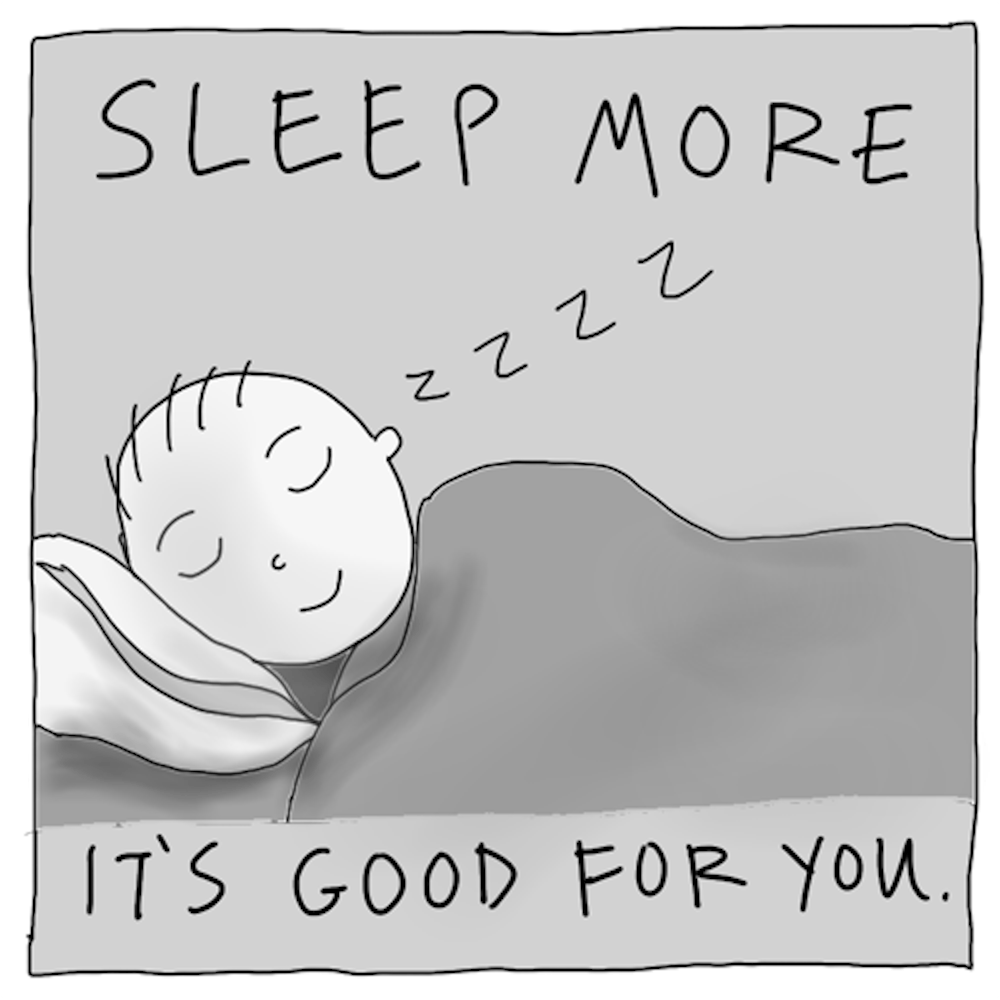British study shows sleeping fewer than six hours a night affects hundreds of genes and may link to heart diease and diabetes
(Ann Truong | THE BEACON)
By Kate Stringer, Staff Writer stringer14@up.edu
For college students, sleeping is good for many things. It's good for the morning after a Friday night party. It's great for procrastinating on a homework assignment. It's an excellent solution to a boring class lecture.
But for the college student who has papers to write or friends to socialize with, sleep is overrated.
British researchers, however, would disagree.
A recent study by U.K.'s Surrey Sleep Research Centre found that getting less than six hours of sleep for several consecutive nights affects hundreds of genes, including those that impact the immune system, inflammation and stress. Researchers hope the results of this study can help explain the link between sleep deprivation and illnesses like heart disease, obesity and diabetes.
Many students realize they need more sleep but may not understand the magnitude of effects sleep deprivation can have on the body.
Sophomore Matt Sutherland notices the effects of getting less sleep.
"[When I don't get enough sleep] my day has a lot of ups and downs energy-wise," Sutherland said. "I do homework late and because of that I have another late night. I'm not always mentally aware, emotionally I'm not the same - I'm just out of it mentally."
Sleep is important physically, emotionally and mentally, according to Will Meek, assistant director of counseling and training at the Health Center. Sleep repairs damaged tissues, boosts the immune system and allows the brain to function optimally for both learning and controlling emotions.
When students sleep less than this, Meek notices problems.
"If somebody's not sleeping enough, you end up with people who really start to fray," Meek said. "It can start to look like all kinds of things: major attention problems, major mood problems, problems being motivated - all of those things that, when we sleep well, are pretty easy. But when we're not sleeping well, doing those things starts to be really hard."
While Meek says the amount of sleep needed depends on the person and their age, he says students should aim for sleeping about seven to eight hours per night, the recommended amount for adults.
"Generally when people come in and say they sleep four hours a night and they're fine, I think they're not fine," Meek said.
Meek says that although people can adjust to sleeping fewer hours per night, they will not be at optimal levels.
"Our bodies can get used to it, we can adjust to four or five hours a night, but we're not functioning at our best," Meek said. "We have deficits, we might be so used to it we don't even notice them."
According the Centers for Disease Control and Prevention, 30 percent of adults sleep less than six hours per night. Meek believes people are misinformed when it comes to the importance of sleep.
"Everybody knows you should eat well and exercise," Meek said. "I think [sleep] is the big missing link. I think people don't also know they need to sleep enough and all of this other stuff can flow from being well rested."
Students attribute multiple factors to their limited amounts of sleep.
Freshman Tori Kerssen-Griep finds that homework is the major player keeping her up late, typically until 1 or 2 a.m.
"I will never go to bed until my homework is finished," Kerssen-Griep said. "I'll save things until last minute and then I won't let myself do anything until it's done."
For students who have trouble getting enough sleep, Meek recommends waking up at the same time every day, regardless of what time a person goes to bed. Additionally, having a transition period of 10 to 15 minutes between activity and sleep will help students relax and fall asleep easier.








